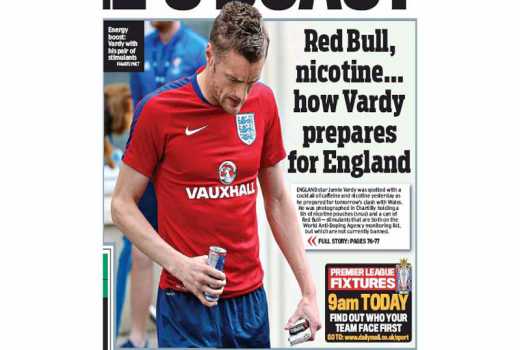×
The Standard e-Paper
Fearless, Trusted News

Premier League footballers are turning to a banned stimulant with links to cancer to give them the edge over their rivals, it's claimed.
Snus, which Leicester City and England striker Jamie Vardy has previously admitted taking, is a form of smokeless tobacco containing extremely high levels of nicotine.